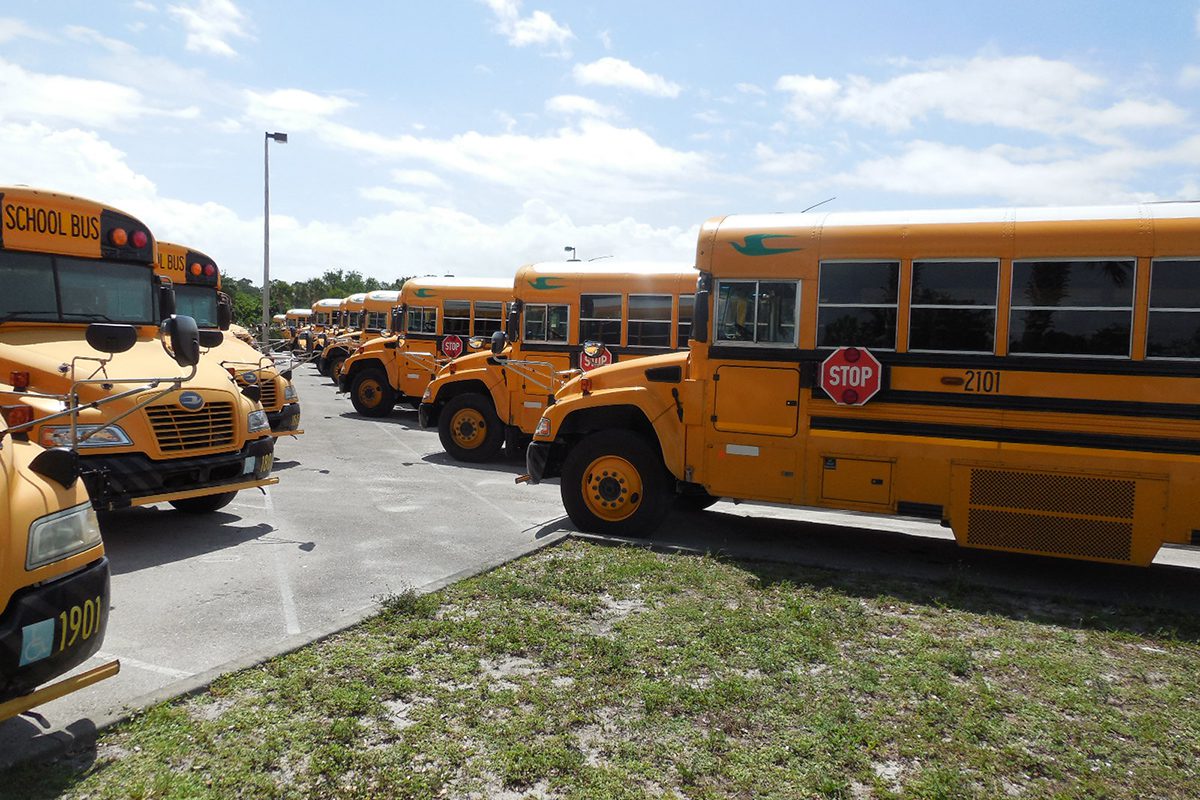Every child deserves a safe, clean, healthy ride to and from school. It’s generally understood that the best way to provide that ride is not with the dirty diesel school buses most adults rode to school in. However, many children in Florida and around the country are still being transported by diesel buses due to a perception of lack of affordable alternatives.
Our district has 6,000 students that travel to 26 schools on 77 routes. That’s a lot of kids who could be exposed to that black smoke that is dispensed from a diesel bus, not to mention invisible threats like nitrogen oxides that can exacerbate asthma, bronchitis and other breathing problems, which contribute to absenteeism.
But they’re not. All the routes are handled by near-zero-emission propane school buses. It’s propane – the same fuel that helps our state out after almost every hurricane, when gasoline and diesel may not be available.
Back in 2009, our district faced a dilemma. We had to make adjustments to our school bus fleet to meet new emissions standards while simultaneously navigating government-mandated budget cutbacks. Not a good situation, but my predecessors were prescient. They looked at fuels that would offer low cost of ownership and run much cleaner than diesel. They decided to buy three propane buses as a test. Fourteen years later, we’re exclusively propane.
The financial benefits are myriad for us. We paid $3.56 per gallon for diesel; with propane, we pay $1.68. Plus, because propane operates clean, there are fewer oil changes and filters needed, which is both a cost and time savings. I checked with our warehouse foreman, and the basic preventative maintenance cost of a propane bus is $18.84. The same cost on our diesel buses runs $65.98 for air and fuel filters
Propane buses also reduce noise levels. You can have a normal conversation with someone on a propane bus without having to talk over a diesel engine. Our drivers are better able to concentrate on the roads, and there is less unsavory noise in our community.
Our drivers do not need to sacrifice performance, reliability, or range. Propane buses have the same power, towing capacity, and torque as diesel buses, and they can travel as far as 400 miles on a single fueling.
For fill-ups, we use mobile fueling, where a propane bobtail truck comes daily to fuel our buses. We are currently considering an on-site fueling station, similar to neighboring districts that have installed a propane station on property. It costs less to install a propane station than any other type of fuel, including gasoline, diesel, CNG, or electric.
Propane buses are already here, with more than 22,000 operating nationwide, transporting 1.3 million kids to school in 49 states. There are about 500 on Florida roads. I encourage state school districts and bus contractors to take a vigilant look at propane buses, because for us, it was the option that made the most sense.
Jennifer Idlette is director of transportation for Indian River County School District in Vero Beach, Florida.


